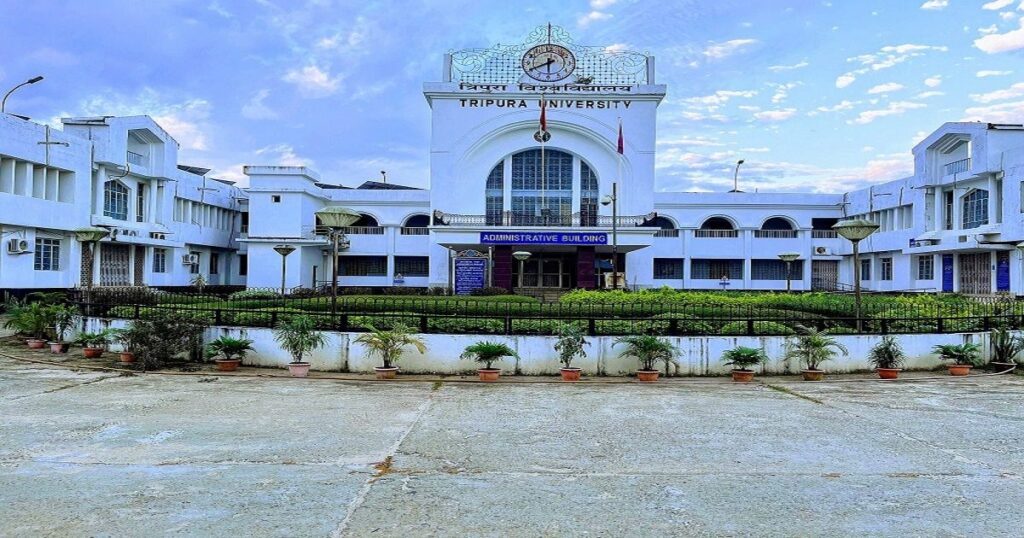
Tripura University has backed down from enforcing biometric attendance for faculty after a wave of protests from its teaching community, who condemned the move as discriminatory, legally unsound, and an attack on academic freedom.
The controversy erupted when the administration announced that only Assistant Professors would be required to mark their attendance through biometric systems, leaving Professors and Associate Professors exempt without explanation. Faculty members argued that such selective implementation violated the equality provisions of Article 14 of the Constitution. It contravened the Tripura University Act, 2006.
In rejecting the administration’s claim of acting under central government directives, teachers cited a 2019 Parliamentary reply by former MoS for HRD Dr. Satya Pal Singh, which clarified that Central Universities, IITs, and IIMs are autonomous statutory bodies empowered to set their attendance policies. They also referred to the Allahabad High Court judgment in Suchitra Mitra vs. Union of India, which reaffirmed that university teachers are not bound by Central Civil Service rules.
Tripura University currently has 182 sanctioned faculty posts—50 Professors, 32 Associate Professors, and 100 Assistant Professors. Critics noted that targeting only the Assistant Professors for biometric tracking smacked of bias. They also dismissed the administration’s claim of “300-plus” teachers backing the move, pointing out that the university doesn’t have that many regular faculty members. Allegations surfaced that vulnerable guest faculty were pressured into expressing support.
Opponents of the policy argued that biometric systems are incompatible with the nature of academic work, which extends far beyond fixed hours and includes research, mentoring, thesis supervision, and administrative duties. UGC guidelines emphasize these broader responsibilities, which cannot be measured by clock-in and clock-out systems.
Faculty also noted that no other central university in the Northeast, such as NEHU, Assam University, Mizoram University, or Manipur University, has adopted biometric attendance for its academic staff. Even older, more prominent central institutions nationwide have steered clear of such measures.
The dispute added fuel to long-standing grievances over governance at Tripura University, including allegations of opaque recruitment practices, absentee leadership, and questionable financial decisions. Questions were also raised about the procurement process for the biometric devices, with critics pointing to a lack of Executive Council approval and transparency.
On July 30, 2025, faculty members submitted a formal representation rejecting the policy. They reaffirmed their commitment to accountability through academic audits, improved student feedback mechanisms, and transparent performance reviews. “We are not resisting accountability—we are resisting arbitrary surveillance,” the statement read.
Amid mounting criticism, the administration on August 7, 2025, issued a notification placing the biometric attendance plan “in abeyance” pending further consultation with faculty and review by the Executive Council.
The decision was widely welcomed on campus as a victory for collective action. Meanwhile, many believe the episode has exposed deeper governance flaws. Calls are now growing for an independent review of administrative practices and a renewed commitment to democratic decision-making within the university.
As one senior faculty member put it, “This was never just about attendance machines—it was about defending the academic soul of this institution.”
